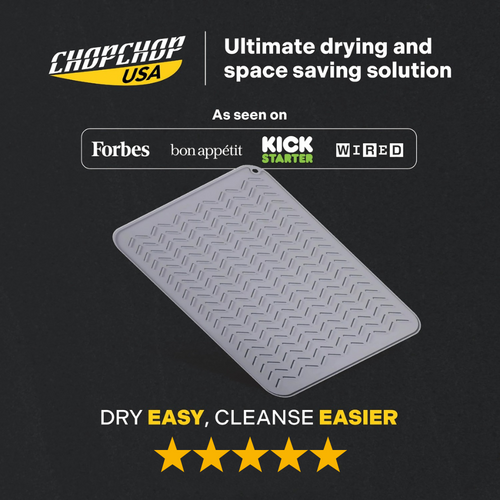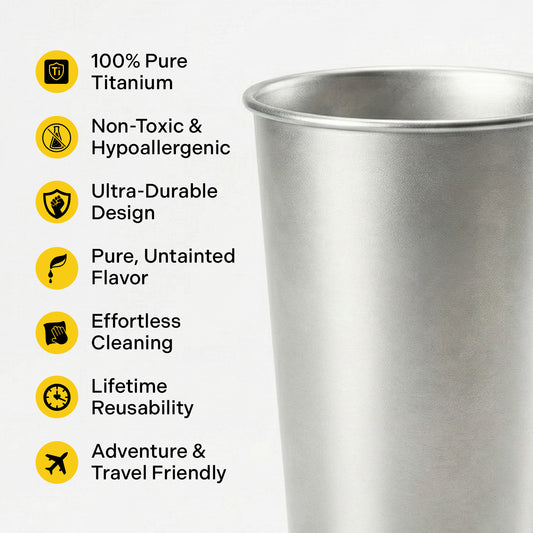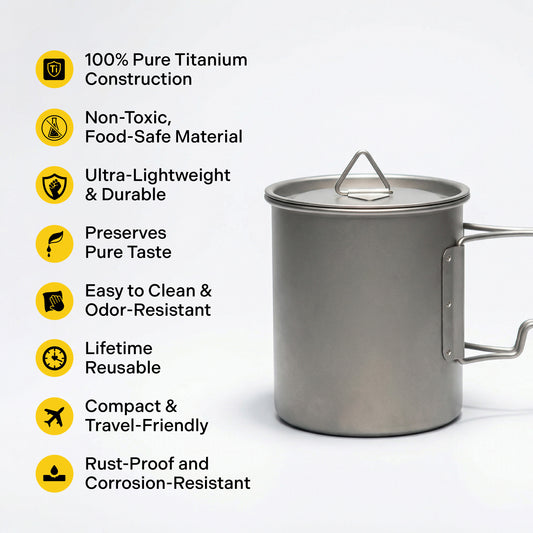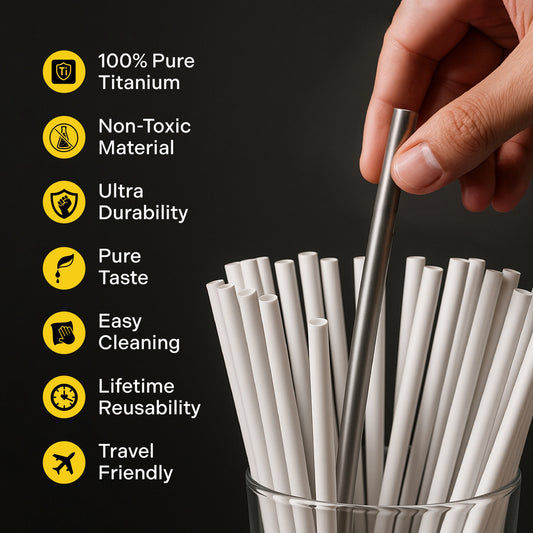Aluminum vs Stainless Steel Cookware: Which Is Better? It depends on your cooking preferences and needs. aluminum vs stainless steel cookware differs in heat performance, durability, and price. Aluminum cookware is known for its exceptional heat conductivity and lightweight design, while stainless steel cookware delivers durability, precision, and a polished professional look.
In this guide, ChopChop USA explores the differences, pros, and cons to help you choose the best aluminum vs stainless steel cookware for your kitchen.
What Is Aluminum Cookware?

Aluminum cookware is made primarily from lightweight aluminum metal, prized for its quick heating and energy efficiency. It conducts heat evenly, making it ideal for fast, everyday cooking.
However, raw aluminum is reactive with acidic or alkaline foods, which is why most high-quality aluminum pans are anodized or clad with non-reactive layers. Anodized aluminum cookware is harder, non-reactive, and scratch-resistant, offering better longevity and safety than untreated aluminum.
Modern aluminum pans often feature nonstick coatings or are combined with stainless steel bases to enhance stability and compatibility with induction stovetops. This makes aluminum a cost-effective, versatile option in the aluminum vs stainless steel cookware category.
What Is Stainless Steel Cookware?

Stainless steel cookware is crafted from a blend of iron, chromium, and nickel — typically in 18/10 or 304-grade steel. It’s well-loved for its strength, sleek design, and resistance to corrosion or rust.
Unlike aluminum, stainless steel is non-reactive, meaning it won’t alter the taste of acidic foods like tomatoes or citrus. Many stainless steel pans also include an aluminum or copper core sandwiched within layers of steel to improve heat conductivity while retaining their robust structure.
This balance of strength and control makes stainless steel a top contender in aluminum vs stainless steel cookware comparisons.
See more:
- 3 Ply vs. 5 Ply Stainless Steel Cookware – Which is Better?
- Best Stainless Steel Grades for Cooking: Safe & Durable Cookware
- How to Cook With Stainless Steel Pans: Tips, Tricks & Common Mistakes
6 Key Differences Between Aluminum and Stainless Steel Cookware

When comparing aluminum vs stainless steel cookware, each material offers unique benefits depending on your cooking habits.
Heat Conductivity and Performance
Aluminum is an excellent heat conductor, heating up rapidly and evenly across the surface. This makes it perfect for quick cooking or temperature-sensitive dishes.
Stainless steel, by contrast, heats more slowly but retains heat longer — ideal for searing, sautéing, and browning. For chefs who need precision and control, stainless steel wins in performance stability.
Durability
Stainless steel is extremely durable, scratch-resistant, and warp-proof, lasting for decades with proper care.
Aluminum, though lighter and more affordable, is softer and more prone to dents or scratches unless anodized. Hard-anodized aluminum models, however, offer improved resilience and long-term use.
Reactivity and Safety
Bare aluminum can react with acidic foods, causing flavor changes and discoloration. Stainless steel is non-reactive, making it a safer option for all recipes.
If you prefer aluminum, choose anodized or clad cookware, which eliminates this issue entirely.
Maintenance and Cleaning
Aluminum often has nonstick coatings that require gentle care, while stainless steel can endure abrasive cleaning and dishwasher use. For convenience, stainless steel has the edge in aluminum vs stainless steel cookware maintenance.
See more: How to Clean a Frying Pan? - A Complete Guide
Weight and Handling
Aluminum cookware is significantly lighter, making it easier to maneuver and ideal for daily use or elderly cooks.
Stainless steel is heavier but provides a stable, balanced feel — perfect for professional cooking setups.
See more: How Much Does a Frying Pan Weigh?
Price
Aluminum is budget-friendly, while stainless steel requires a higher investment but lasts longer — a common factor when deciding between aluminum vs stainless steel cookware.
Cooking Performance Comparison
In aluminum vs stainless steel cookware, both materials perform differently but complement each other well.
Aluminum excels in quick, even heating, ideal for frying eggs, pancakes, or delicate fish. It’s great for low to medium heat cooking.
Stainless steel, however, thrives under high-heat conditions, allowing for superior searing, browning, and deglazing. It’s the go-to choice for sauces, meats, and complex recipes requiring temperature control.
Professional chefs often use both — aluminum for speed and stainless steel for precision.
Pros and Cons of Aluminum Cookware

Before investing, here’s what you should know about aluminum cookware.
Pros of Aluminum Cookware:
- Lightweight and easy to handle
- Excellent heat conductivity
- Affordable and widely available
- Quick heating and responsive temperature changes
- Even cooking results with minimal hot spots
Cons of Aluminum Cookware:
- Can react with acidic foods (if not anodized)
- Softer material — prone to dents or scratches
- Often not induction-compatible (unless clad)
- Nonstick coatings may wear over time
Pros and Cons of Stainless Steel Cookware

Aluminum vs stainless steel cookware debates often highlight stainless steel’s professional durability and sleek look.
Pros of Stainless Steel Cookware:
- Extremely durable and long-lasting
- Non-reactive and toxin-free
- Great for high-heat cooking and deglazing
- Dishwasher- and oven-safe
- Timeless, polished appearance
Cons of Stainless Steel Cookware:
- Heavier than aluminum
- May require oil or preheating to prevent sticking
- Can develop heat discoloration
- More expensive upfront
Pros and Cons Summary Table
| Feature | Aluminum Cookware | Stainless Steel Cookware |
|---|---|---|
| Weight | Lightweight | Heavier, stable |
| Heat Conductivity | Excellent | Moderate (improved with core) |
| Heat Retention | Moderate | Excellent |
| Maintenance | Easy, gentle cleaning | Dishwasher-safe |
| Reactivity | Reactive (unless anodized) | Non-reactive |
| Durability | Moderate | Extremely high |
| Price | Budget-friendly | Premium |
| Non-Toxic | Yes (anodized) | Yes |
| Ideal Use | Quick, everyday cooking | Searing, sauces, high-heat cooking |
Which Cookware Is Better for You?
If you value lightness and speed, aluminum cookware is ideal. For long-term durability and pro-level performance, stainless steel is best. Many home chefs use both to balance versatility and precision — making aluminum vs stainless steel cookware a complementary pairing.
Upgrade Your Kitchen With ChopChop USA
At ChopChop USA, every cookware piece is designed for safety, performance, and style. The brand offers premium options across materials — including stainless steel, anodized aluminum, and hybrid nonstick cookware — all PFAS-free and toxin-free.
Stainless Steel Frying Pan

Built from high-grade 18/10 stainless steel, the ChopChop USA Stainless Steel Frying Pan offers unmatched durability, heat control, and versatility. Its multi-layered base ensures even heating, preventing hot spots and giving you precise temperature control for perfect cooking results. Whether you’re searing meats, sautéing vegetables, or crafting flavorful sauces, this pan performs like professional-grade cookware.
Beyond its performance, the pan’s mirror-polished finish and ergonomic handle make it as beautiful as it is practical. It’s oven-safe, dishwasher-safe, and compatible with all stovetops — a must-have for any cook who values both quality and design.
Hybrid Nonstick Frying Pan

For those who demand convenience without compromise, the ChopChop USA Hybrid Nonstick Frying Pan is a game-changer. It features a unique micro-textured surface that combines the durability of stainless steel with the effortless food release of a nonstick pan. Completely PFAS-free and toxin-free, it provides a safe, chemical-free cooking experience.
This pan excels in versatility — from crispy vegetables and tender fish to fluffy omelets, every dish slides right off with minimal oil. Its scratch-resistant surface ensures long-lasting performance, while its sturdy base offers exceptional heat distribution and stability. Cleanup is quick and effortless, making it ideal for everyday cooking.
Each ChopChop USA cookware piece is carefully engineered to meet modern cooking demands — offering durability, safety, and culinary precision that elevates every meal.
Conclusion
When comparing aluminum vs stainless steel cookware, there’s no one-size-fits-all answer. Aluminum offers lightweight efficiency and quick heating, while stainless steel provides unmatched durability and control.
Whichever you choose, ChopChop USA cookware guarantees premium quality, non-toxic materials, and performance you can trust — meal after meal.
For more amazing recipes, follow me on Facebook and Instagram! If you have any questions about ChopChop USA's products or promotions, please feel free to contact us at support@chopchopusa.com. Our dedicated team is available 24/7 and always happy to assist you.
Frequently Asked Questions
1. Is aluminum cookware safe?
Yes, anodized aluminum cookware is completely safe and non-reactive, preventing any metal leaching or food discoloration.
2. Does stainless steel cookware heat faster?
Not as fast as aluminum, but it offers better heat retention and consistency once heated.
3. Which cookware lasts longer — aluminum or stainless steel?
Stainless steel typically lasts longer due to its superior strength and resistance to wear.
4. Can I use aluminum cookware on an induction stove?
Only if it has a magnetic stainless steel base; pure aluminum won’t work with induction cooktops.
5. Why choose ChopChop USA cookware?
Because it combines non-toxic materials, modern design, and professional-grade quality, ensuring safety, durability, and top-tier cooking performance.

















